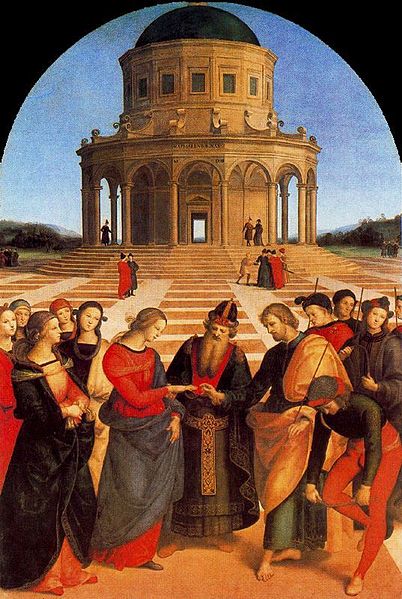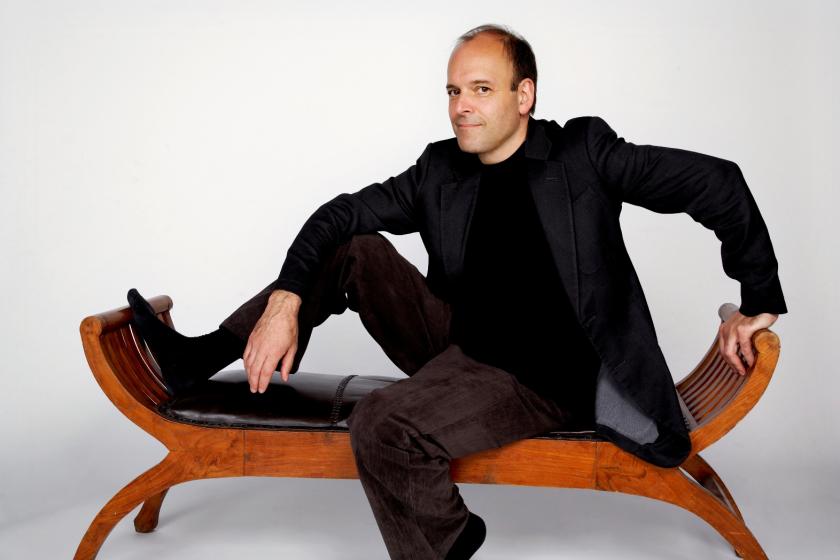It was Chopin time when I last heard Louis Lortie, and a typical London clash of scheduling allowed me to catch his effervescent Op 10 Études before pedalling like crazy north of the river for the second half of Elisabeth Leonskaja’s even bigger all-Chopin programme. Last night Lortie offered a comparably monumental homage to this year's bicentenary birthday boy Liszt in all his Italian-inspired variety, and there was no need to miss, or to wish to miss, a note. It still didn’t convert me to the idea that Liszt, like Chopin in 2010, has more to him than first meets the ear, but it was certainly dazzling and imposing in rapid succession.
Liszt did rather chuck together diverse themed pieces for his second “year” of the travelogue cycle Années de pèlerinage, but the programmatic idea – inspiration from great Italian poetry and art rather than the nature which had informed his Swiss set – makes a good sequence, if a tough one for half a concert. And Lortie, like Leonskaja, magisterially allows no fidgeting, let alone applause, between each different mood.
 The sonorous tolling that underpins the bright, lucid surface of Sposalizio, a good aural counterpart to the paradoxically vibrant calm of its Raphael source (pictured right), can effortlessly turn to stone in the funeral-march lament of Il penseroso (again, a thoughtful homage, this time to Michelangelo’s Thinker on Lorenzo de' Medici's tomb in Florence).
The sonorous tolling that underpins the bright, lucid surface of Sposalizio, a good aural counterpart to the paradoxically vibrant calm of its Raphael source (pictured right), can effortlessly turn to stone in the funeral-march lament of Il penseroso (again, a thoughtful homage, this time to Michelangelo’s Thinker on Lorenzo de' Medici's tomb in Florence).
By this stage we needed a jolly; the supposed Canzonetta of Salvator Rosa – the exuberant ditty is Bononcini’s, but never mind – bounced, but in high, lucid and bright style. Lortie’s seemingly improvisational way of moving from one idea to another – which of course was Liszt’s novelty in the 1830s and 1840s – transformed the second of the Petrarch Sonnets, already heard once or twice too often this year in performances which never joined the thoughtful dots in this way.
As for the Fantasia quasi sonata which juggernauts its way from tritonal hell to tinkling paradise, its placing as the grand sub-Dantean finale after all that Petrarchan poetry and Lortie’s seemingly four-hand clarity was almost persuasive. Almost, but I do wonder if the Fazioli instrument Lortie seems to love favours brilliance and clarity over depth of sound. That can become as wearing as Liszt’s rodomontade, and the actual substance surely isn’t a patch on the B minor Sonata to come.
The layering of water sprays once again found its equivalent in Lortie’s apparent borrowing of an extra hand or two
Which would have been a step too far in this programme. But in any case we needed to stay in Italy after the interval. The chiselled lugubriousness of two negative-image late-Venetian water pieces – one apparently anticipating Wagner’s imminent death in the Palazzo Vendramin, the other commemorating it – effortlessly linked to the graded return of the bright surface in the first of the Venezia e Napoli sequence Liszt prevaricated over adding to the second book of pilgrim years, a happy rather than a tragic gondola ride.
Heavy tragedy returns in a paraphrase on the Dante-quoting gondolier of Rossini’s Otello, and the finale’s crazily overwrought Tarantella was dashed off without hurry or bluster by Lortie as if it were the lightest of showpieces. But the real treasure, substance-wise, was the encore, the truly masterly Jeux d’eau à la Villa d’Este. The layering of water sprays in that magnificent garden at Tivoli once again found its equivalent in Lortie’s apparent borrowing of an extra hand or two, an illusion heightened by his magical ability to conjure different sonorities from the two extremes of the piano’s register.














Add comment